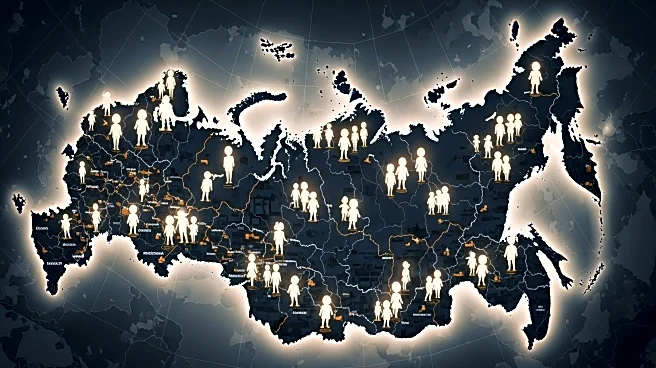What's Happening?
A new report from the Yale School of Public Health Humanitarian Research Lab has identified over 200 facilities in Russia where Ukrainian children have been taken. These facilities include summer camps, religious sites, and military academies, where children are subjected to forced 're-education' and military training. The report, initiated at Ukraine's request, aims to map the network of these facilities to aid in the return of the children to Ukraine. The research utilized open-source intelligence, news reports, Russian government documents, and satellite imagery to identify these locations. Some children are temporarily held, while others are given Russian citizenship and coerced into adoption. The report also highlights that older children receive military training, including drone control and tactics. The Kremlin has denied allegations of war crimes related to these actions.
Why It's Important?
The findings of this report have significant implications for international law and human rights, as they support allegations of war crimes against Russian President Vladimir Putin. The International Criminal Court has issued arrest warrants for Putin and Russia's children's rights commissioner, Maria Alekseyevna Lvova-Belova, for overseeing these forced deportations. The situation underscores the ongoing humanitarian crisis resulting from the conflict in Ukraine and highlights the challenges in international diplomacy and justice. The report's revelations could influence global political dynamics, particularly in how countries engage with Russia and address human rights violations.
What's Next?
Ukraine has made the return of abducted children a central issue in any negotiations with Russia to end the war. Ukrainian President Volodymyr Zelenskyy plans to address this issue at a high-level event during the upcoming U.N. General Assembly meeting. Additionally, a bipartisan effort in the U.S. Senate is pushing to label Russia as a state sponsor of terrorism unless it returns the abducted children. This legislative move could further strain U.S.-Russia relations and impact international efforts to resolve the conflict.











